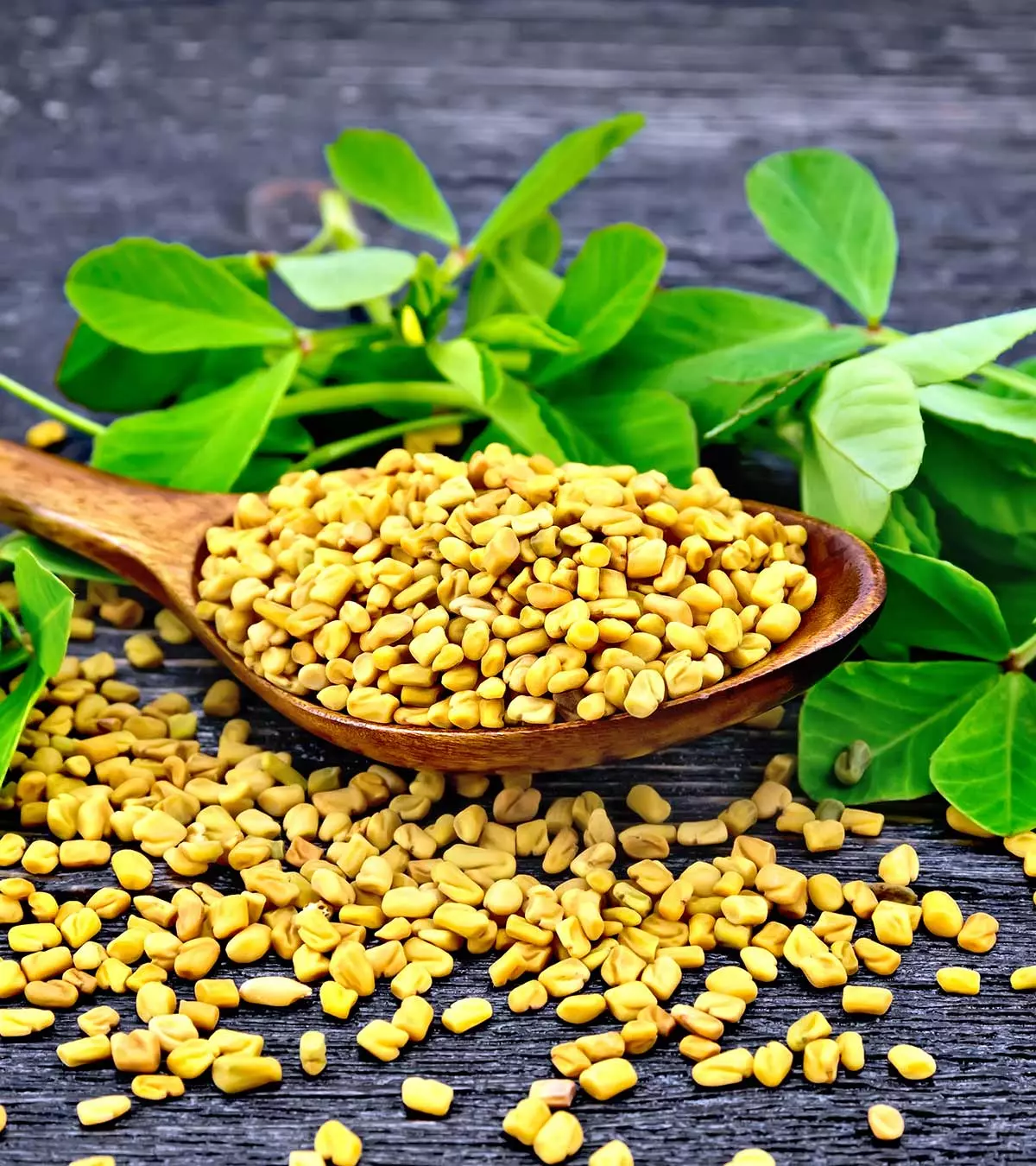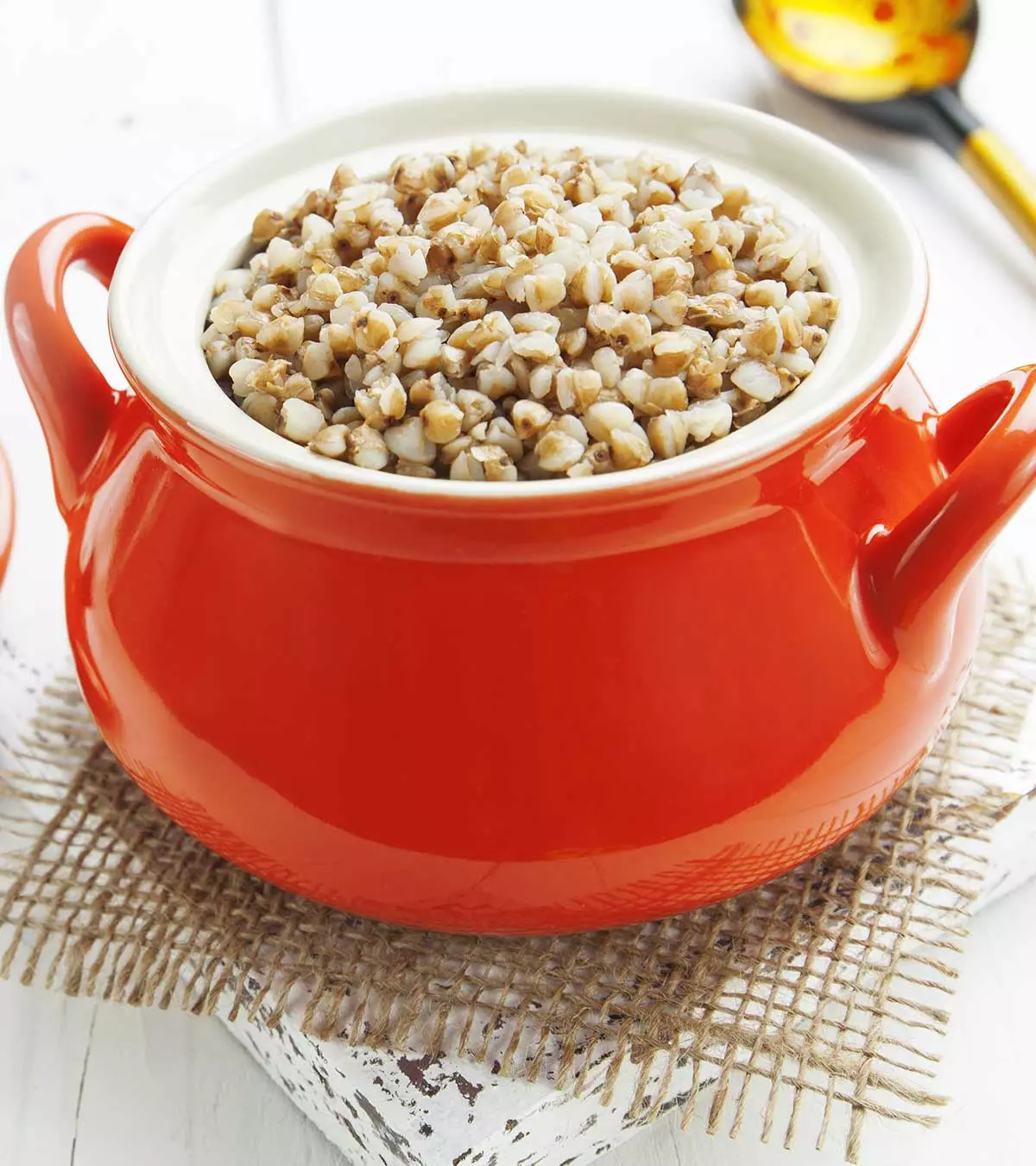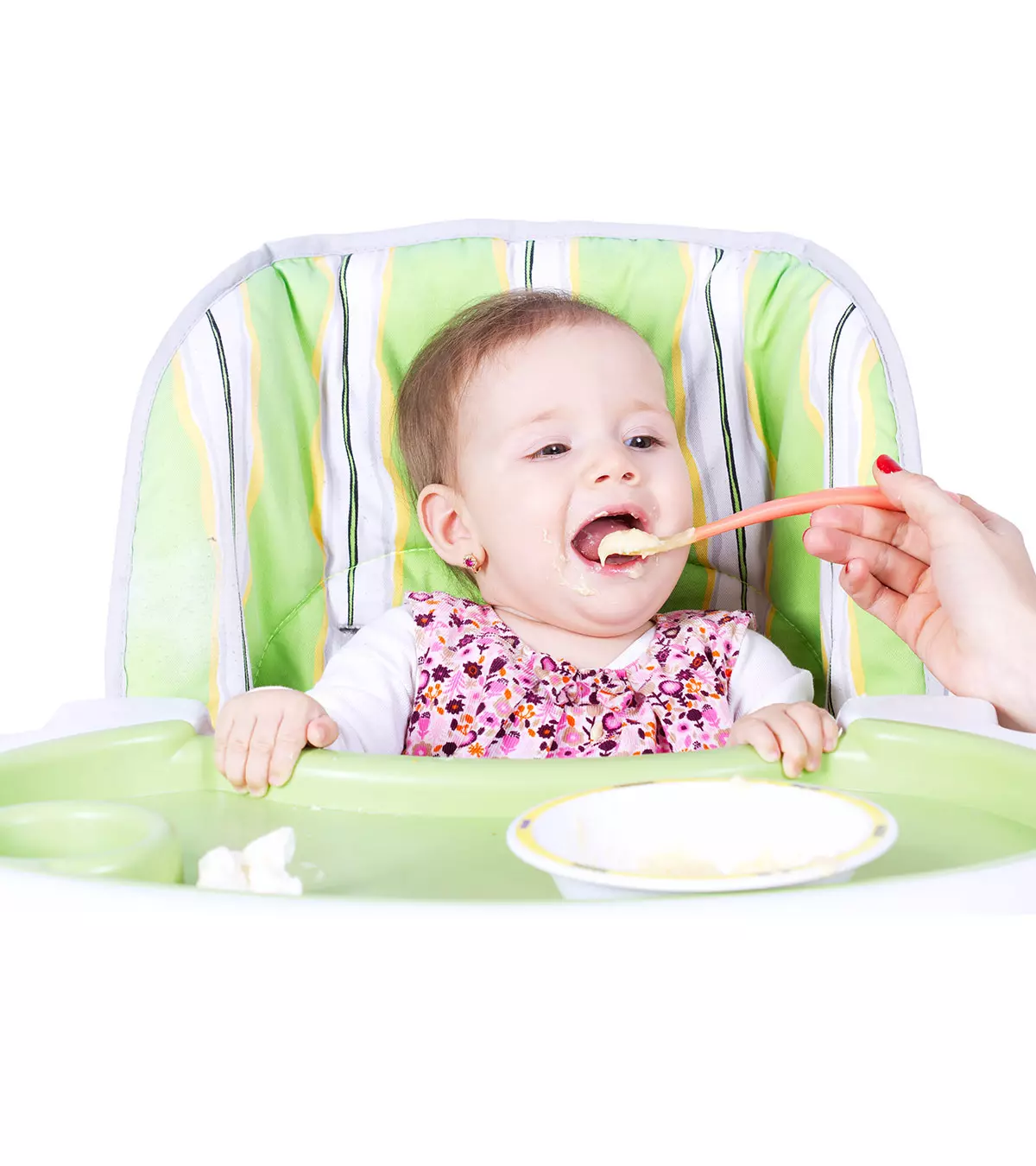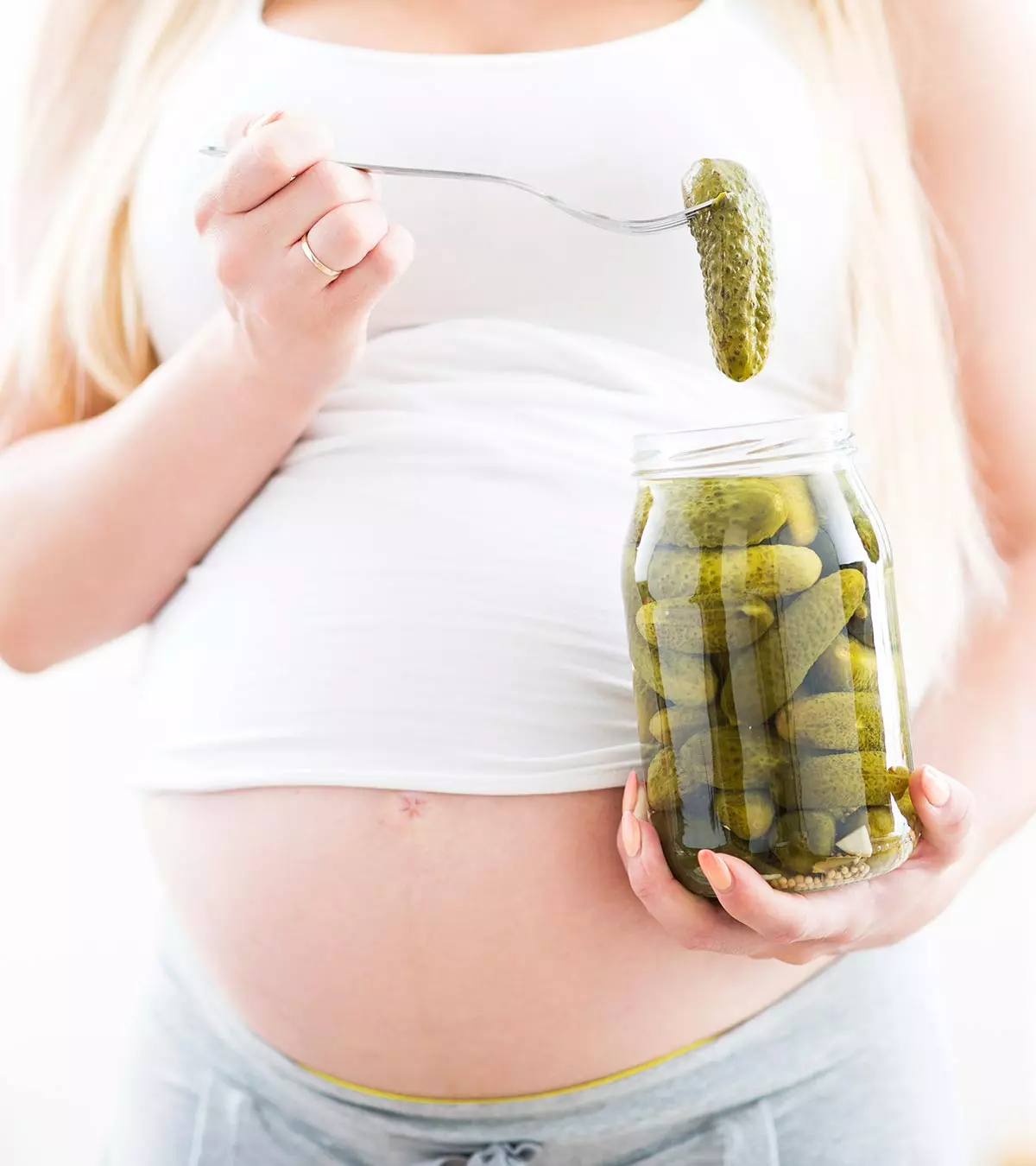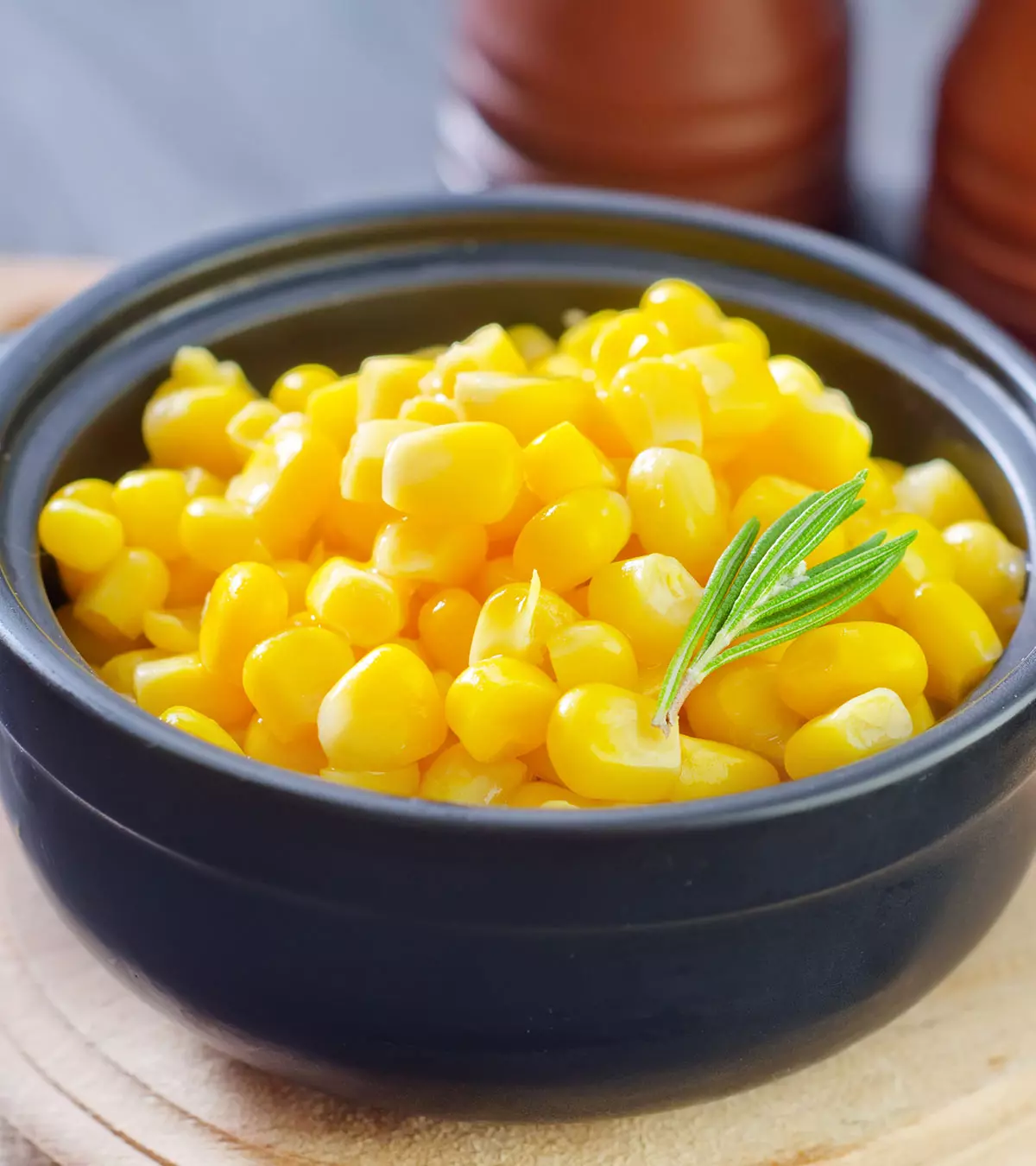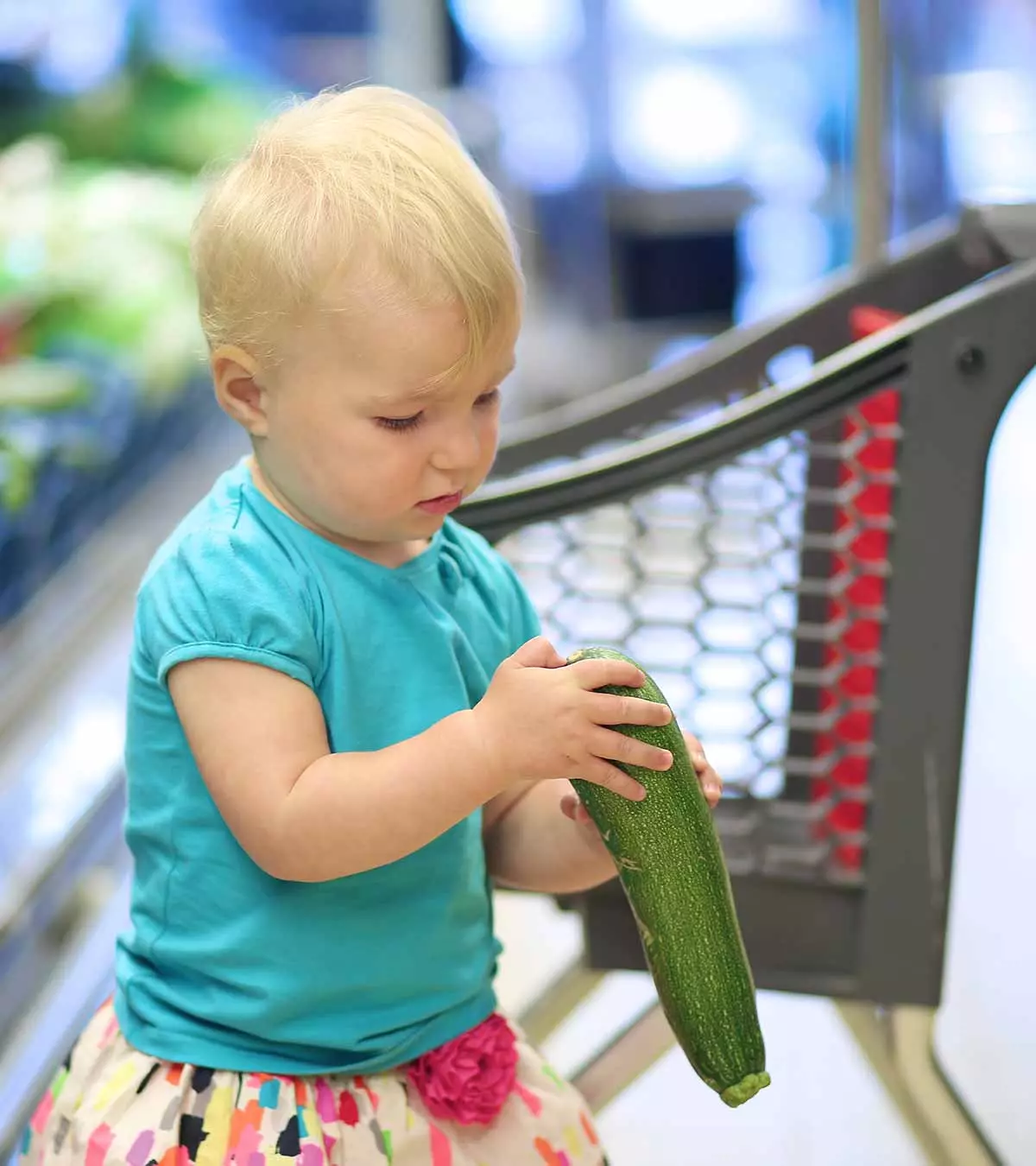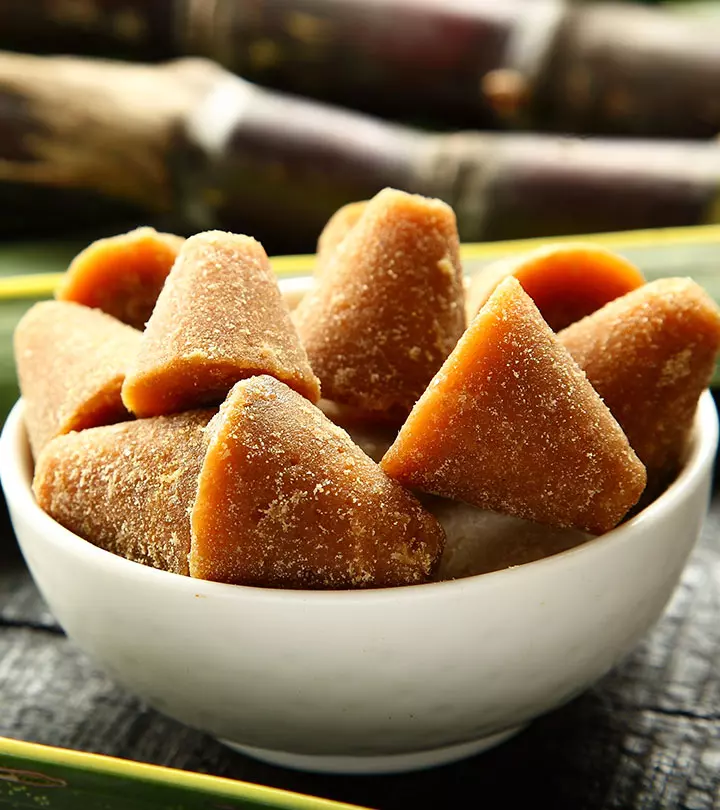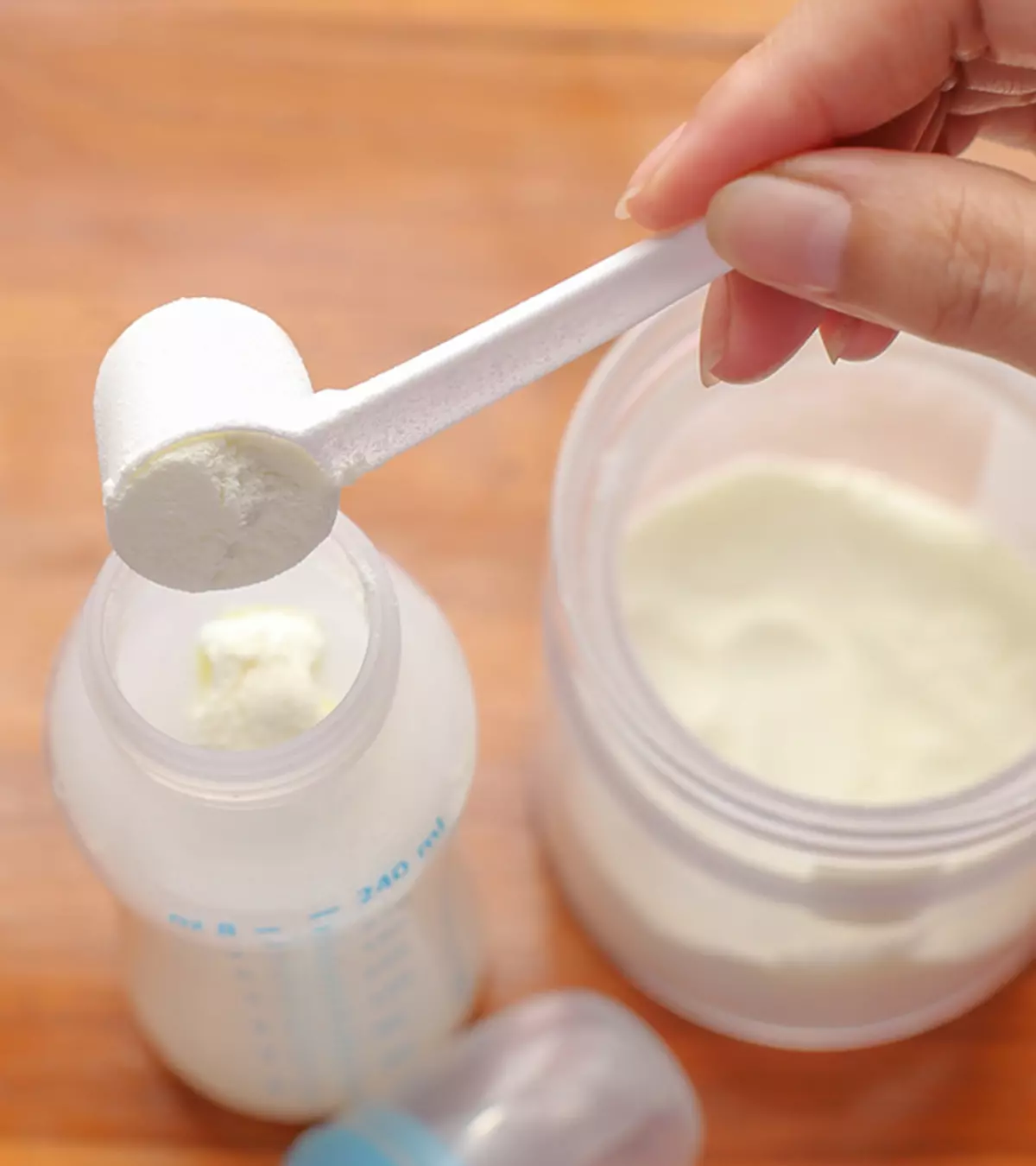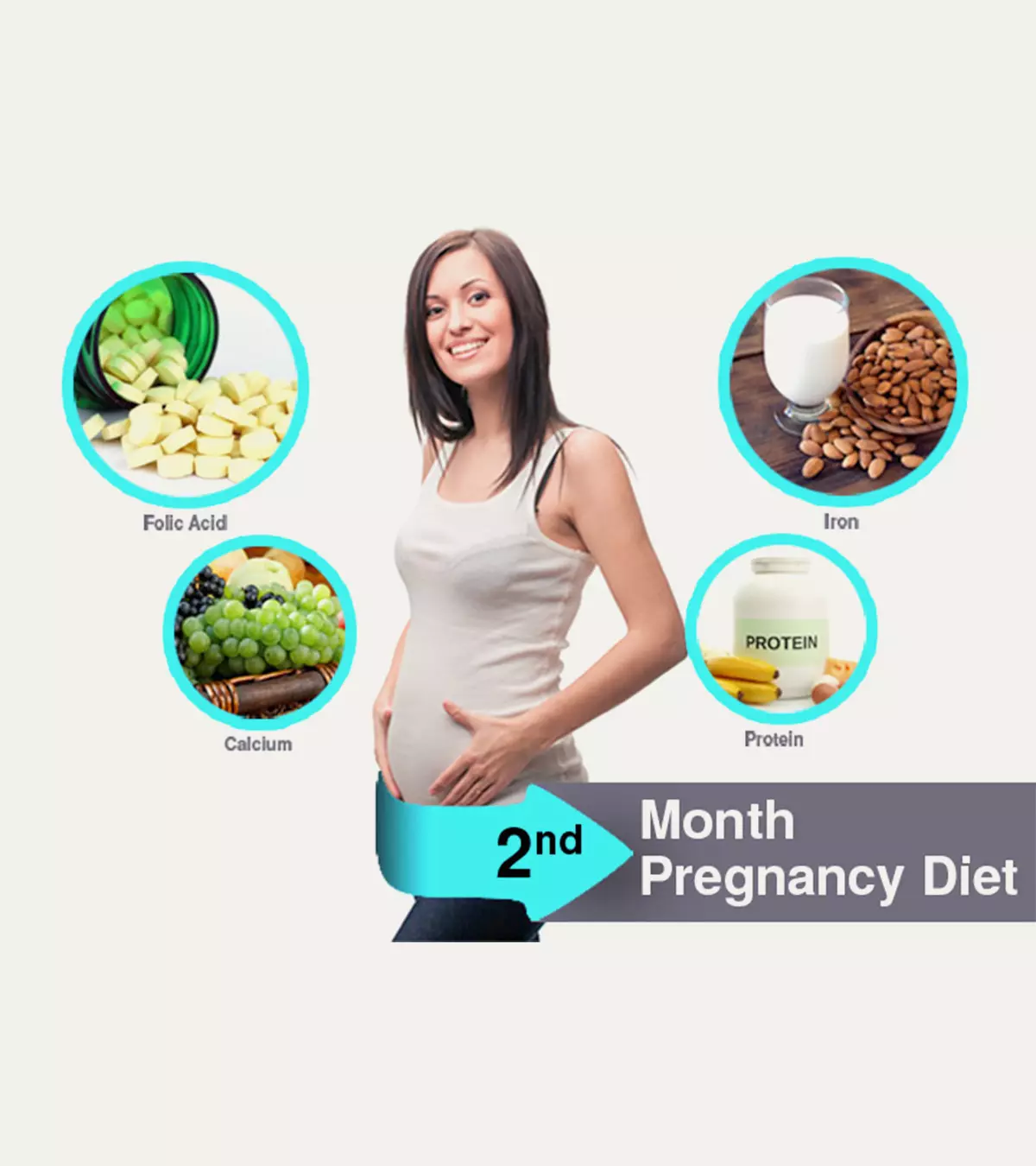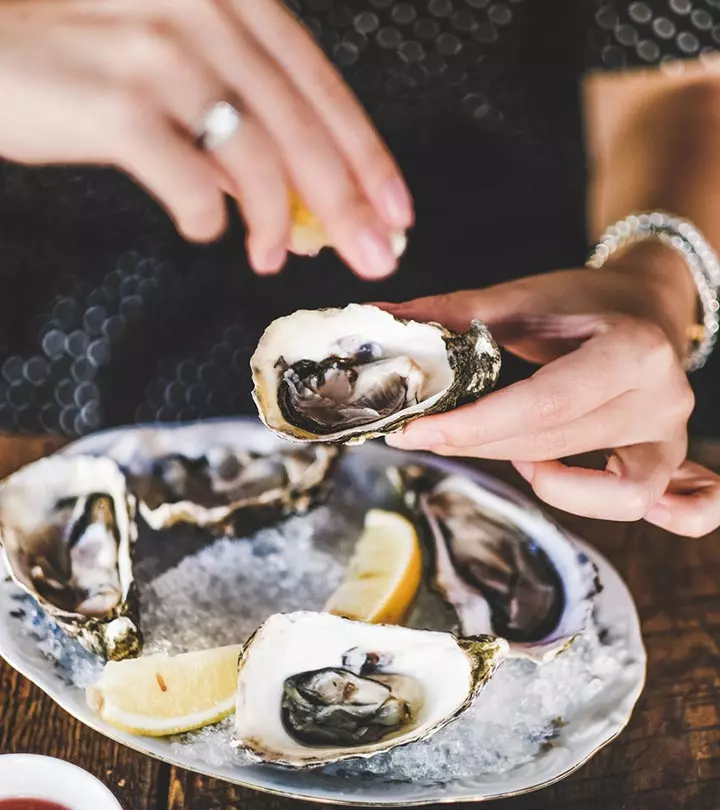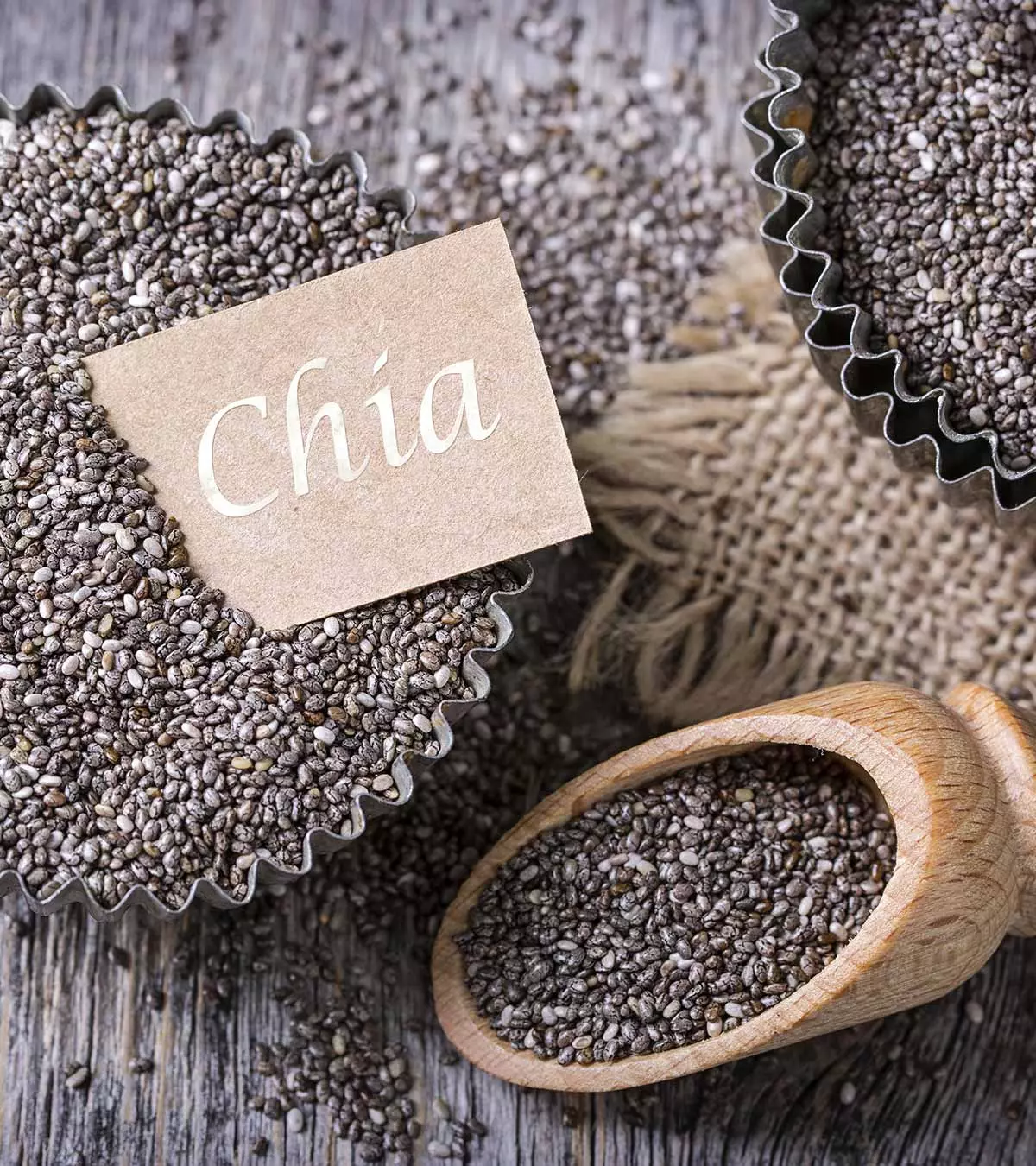
Chia seeds are tiny edible seeds that contain several vital nutrients, such as soluble fiber, high-quality protein, omega-3 fatsiA group of essential fatty acids obtained from the diet and required for good health, especially heart health. , and antioxidants. Since these nutrients promote overall health, consuming chia seeds during pregnancy can benefit you and your baby.
Many expecting mothers wonder how much chia seeds should be consumed daily. Knowing this is essential as excessive intake of these seeds can have certain side effects that may affect you and the baby.
Read on to learn about whether it is safe to consume chia seeds during pregnancy, their nutritional value, possible health benefits, side effects, and suitable ways to add them to your pregnancy diet.
Key Pointers
- Chia seeds are tiny edible seeds that are rich in soluble fiber, protein, omega-3 fatty acids, and antioxidants.
- Consuming chia seeds in moderation (up to 25 grams daily) is considered safe during pregnancy.
- Chia seeds are a good source of energy and can aid in fetal brain development, muscle growth, and relief from constipation and cramps.
- However, overconsumption of chia seeds during pregnancy may lead to flatulence.
- Pregnant women with bleeding disorders or those who use blood-thinning drugs should consult their doctor before consuming chia seeds.
Are Chia Seeds Safe To Eat During Pregnancy?
Yes, chia seeds are safe to consume during pregnancy, but in moderation. They are high in nutrients and can support a healthy pregnancy.
These tiny seeds are often considered a superfood and have been used by the ancient Mayan and Aztec civilizations. However, there isn’t scientific evidence to establish the benefits of consuming chia seeds while pregnant. So it is better to consult your doctor before including them in your diet (1).
 Quick fact
Quick factWhat Quantity Of Chia Seeds Can You Have During Pregnancy?
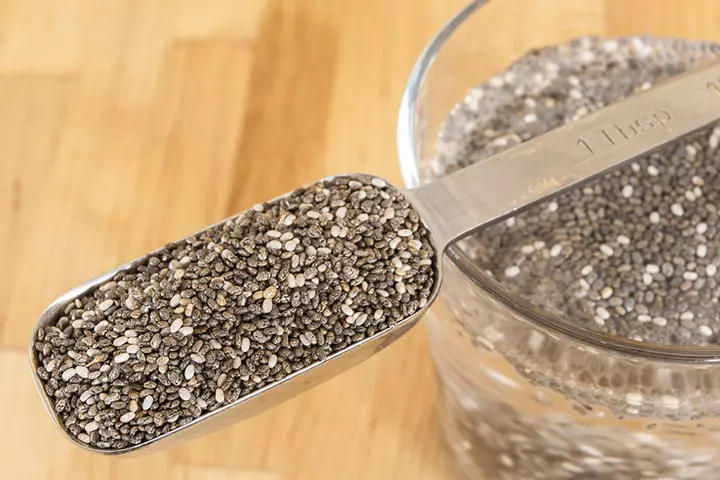
Image: Shutterstock
You can have about 25g of chia seeds every day during pregnancy. This will meet about 18% of your daily protein requirement and one-third of dietary fiber needs, besides much of energy requirements (2).
Nutritional Value Of Chia Seeds
According to the USDA, the nutrition present in 100g of chia seeds is as follows (3):
| Nutrient | Quantity |
|---|---|
| Calories | 486kcal |
| Carbohydrates | 42.14g |
| Protein | 16.5g |
| Fiber | 34.4g |
| Fat | 30.7g |
| Vitamins | |
| Vitamin A | 54IU |
| Vitamin C | 1.6mg |
| Thiamine (Vitamin B1) | 0.62mg |
| Riboflavin (Vitamin B2) | 0.17mg |
| Niacin | 8.83mg |
| Vitamin E (alpha-tocopherol) | 0.5mg |
| Electrolytes | |
| Potassium | 407mg |
| Sodium | 16mg |
| Minerals | |
| Calcium | 631mg |
| Iron | 7.72mg |
| Magnesium | 335mg |
| Zinc | 4.58mg |
| Phosphorus | 860mg |
| Folate | 49 µg |
g=grams; mg=milligrams; mcg=micrograms; IU=international unit
What Are The Benefits Of Chia Seeds During Pregnancy?
Chia seeds are highly nutritious and a good source of healthy fats. Here are some reasons why you should include these seeds in your prenatal or pregnancy diet.
1. Improves energy levels
Exhaustion is normal during pregnancy. Chia seeds are a good energy source that pregnant women can safely consume in moderation (4).
2. Omega-3 fatty acids support fetal brain

Image: Shutterstock
Omega-3s are vital for prenatal health and aid in fetal growth and the development of the baby’s brain. Fish is the major source of omega-3, but its mercury content can be a cause for concern during pregnancy; chia can be a safer plant-based alternative, even for vegans (5).
3. Protein assists in muscle growth
You should require about 70g of protein every day during pregnancy for the development of fetal organs and tissues. Chia seeds contain good protein levels, which make them compliment meat, tofu, poultry and nuts (6).
4. Fiber relieves constipation
Chia seeds are loaded with insoluble fiber that aids digestion (7). If you are suffering from constipation during pregnancy, consuming chia seeds could help. Furthermore, it also aids in weight management, which requires more research.
5. Iron improves oxygen supply
Iron is essential for the production of extra red blood cells that carry oxygen to the body system. Chia seeds are one of the easiest ways to get this nutrient in your diet (8).
6. Magnesium eases cramps
Cramps are common, especially in the third trimester. Sufficient levels of magnesium in the body alleviate cramps and tension in the muscles. Chia seeds are rich in magnesium (9) and may lower the risk of premature laboriA labor that begins early, before 37 weeks of pregnancy. by curbing early uterine contractionsiThe shortening and tightening of the uterus muscles. .
7. Calcium helps with bone development
Intake of calcium is essential for the baby’s bone development, particularly in the third trimester.
Chia seeds contain five times more calcium than milk and are the best alternatives for a dairy-free diet.
In addition to the benefits listed above, chia seeds also have been identified to improve the immune system. Consult your doctor before adding it to your diet and learn how much you should take during pregnancy.
Cordelia Lee, a mother, shares another benefit of having chia seeds during her pregnancy. She says, “I recalled during months of May-June, daily heartburn I suffered. It would come in different degrees of pain. I managed to relieve it by drinking kefir or taking some gastric medication. Along the way, my husband did some research and suggested that I try chia seeds. I tried. It did help to lessen the symptoms of heartburn but it was not a full recovery (i).”
 Did you know?
Did you know?Side Effects Of Chia Seeds In Pregnancy
There are a few risks associated with chia seed consumption when you are pregnant.
1. Gas formation

Image: Shutterstock
Over consumption may increase gas production in sensitive individuals due to high fiber content of chia seeds. Limit your intake to the daily recommended amount, and monitor for any allergic reactions, especially if you have a history of allergies to similar seeds or nuts.
2. Thinning of blood
The omega-3 fatty acids can be beneficial but can also pose risks to the body if taken in larger than the recommended amount. You should consult your doctor before taking it if you have bleeding disorders or if you are taking blood thinning medications (10).
How To Consume Chia Seeds During Pregnancy?
Chia seeds are available both in raw and roasted forms. They are also found in some packaged foods such as cereals, bread, crackers and granola bars. They hold a very mild and nutty flavor and can be added to various recipes.
Here are some ways in which you can include chia seeds in your pregnancy diet.
- Eat them raw as snacks
- Add the seeds to everyday meals and snacks
- Sprinkle over smoothies
- Add them to yogurt, salad or cereal

Image: IStock
- Add to any pudding or dessert
 Point to consider
Point to considerSome Chia Seed Recipes To Use During Pregnancy
1. Chia seeds with water
Soak some chia seeds in a glass of water and leave it overnight. Consume the water the following day. This makes a perfect summer drink.
2. Chia seeds sandwich
You can add chia seeds to a variety of sandwiches. You can either add them to the butter on a slice of bread and top it with another slice or add them to the condiment while making any vegetable, ham or turkey sandwich.
3. Chia seed smoothie
You will need:
- Bananas – 3, sliced
- Dates – 4, pitted and halved
- Coconut milk yogurt – 2 cups
- Coconut water – ¼ cup
- Blueberries – a few
- Chia seeds – ¼ cup
- Berries (strawberries, blackberries and more of your choice) – sliced for topping
- Hemp seeds – topping
How to make:
- Combine the first six ingredients in a blender until you get a smooth consistency.
- Store it in an airtight container and refrigerate for about 20 minutes.
- Add toppings of your choice, and also hemp seedsiTiny, brown color seeds of the Cannabis Sativa plant with rich nutritional value. .
- Serve chilled
 Quick tip
Quick tip4. Coconut chia protein pancakes
You will need:
- Gluten-free all-purpose flour – ¼ cup
- Coconut flour – 2tbsp
- Vanilla whey protein powder – 3tbsp
- Sea salt – a pinch
- Coconut flakes – 1tbsp
- Almond milk – 4tbsp
- Egg – 1
- Pancake batter – 2tbsp
- Chia seeds – 1tbsp
How to make:
- Combine all the ingredients in a bowl, and mix well.
- Take about ¼ cup of it and pour the batter into a non-stick cooking pan.
- Cook for a few minutes and flip over.
- Cook for some more time and transfer to a serving plate.
- You can top with anything of your choice, such as fruit, chia seeds, maple syrup or honey.
5. Chia Fresca
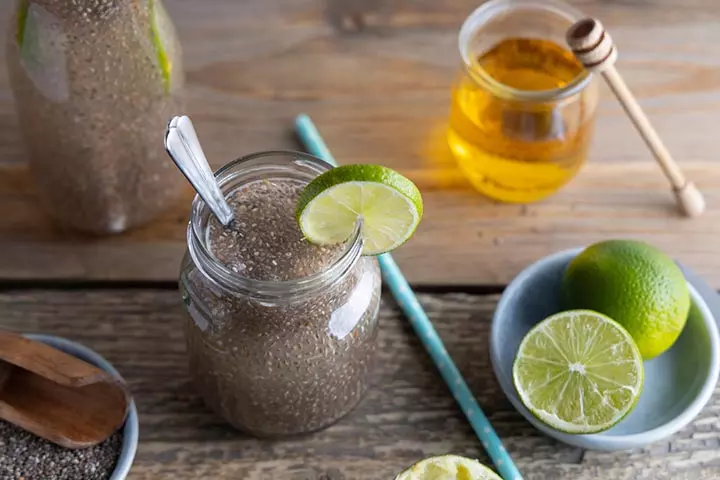
Image: IStock
You will need:
- Water – 2cups
- Lemon – 1
- Chia seeds – 2tbsp
- Sugar or honey – as required
How to make:
- Take water and squeeze fresh lemon in it.
- Add chia seeds, and sugar or honey to it.
- Refrigerate the container for at least two to three hours.
- You will observe the seeds forming a gel-like substance around, which you can readily drink.
6. Chia seed pudding
You will need:
- Fat-reduced coconut milk – ½ cup
- Chia seeds – 2tbsp
- sugar substitute – 2tsp
- Vanilla extract – 1/2tsp
- Berries of your choice – 2tbsp
How to make:
- Mix all the ingredients except the berries.
- Refrigerate the mixture for at least two hours or you can store it overnight.
- Top it with berries before eating.
7. Banana chia pudding
You will need:
- Ripe banana (mashed) – 1
- White chia seeds- 3 tbsp
- Vanilla extract – 1/4 tsp
- Ground cinnamon – 1/8 tsp
- Unsweetened almond milk – 3/4 cup
- Pure maple syrup – 1 tbsp
- Sliced bananas and chopped cashews (to garnish)
How to make:
- Combine mashed banana, almond milk (or your favorite milk), white chia seeds, vanilla extract, and ground cinnamon in a small container.
- Add some maple syrup to enhance sweetness, and stir it well.
- Refrigerate overnight or at least five to six hours for the chia seeds to soak up the liquid and thicken.
- Garnish with sliced banana and chopped cashews for a nice crunch when serving.
- When stored in an airtight container, this pudding remains fresh in the fridge for about four to five days.
Frequently Asked Questions
1. Can I eat chia seeds during early pregnancy?
Yes, you can eat chia seeds anytime during pregnancy. They supply the required nutrition and calories.
2. Can you eat raw chia seeds?
Yes, you can eat raw chia seeds, but they could be hard to swallow because of their dryness.
3. Can chia seeds cause allergies in pregnant women?
Although uncommon, chia seeds may cause allergic reactions in some people, especially those with a history of allergies. Some individuals with sesame allergy may show cross-reactivity chia seeds and develop an allergic reaction (13).
4. Do chia seeds increase breast milk?
Consuming chia seeds as a part of a well-balanced diet may help promote breast milk production during your breastfeeding journey (14).
Chia seeds during pregnancy can benefit both mother and the baby. These seeds are rich in essential nutrients such as vitamins, antioxidants, and omega-3 fatty acids. They are also packed with essential minerals such as iron, magnesium, and calcium. They also provide some amount of proteins and fibers to your diet. Omega-3 fatty acids play a key role in fetal brainiThe brain of an unborn baby aged nine weeks of gestation until birth. development, and proteins enhance tissue and muscle growth. Overconsumption may cause side effects such as gas formation. If you have bleeding disorders or use blood thinners, you may seek a doctor’s advice before adding chia seeds to your diet.
Infographic: Can Chia Seeds Cause Side Effects If Consumed Daily?
No matter how healthy a food is, eating too much of anything can be bad. Therefore, while chia seeds are an excellent addition to your pregnancy diet due to their high fiber content and numerous health benefits, limit your intake to avoid any negative effects. The following infographic presents additional side effects you might experience if you regularly consume too many chia seeds. Illustration: Momjunction Design Team
Illustration: Chia Seeds During Pregnancy: Safety Benefits And Side Effects
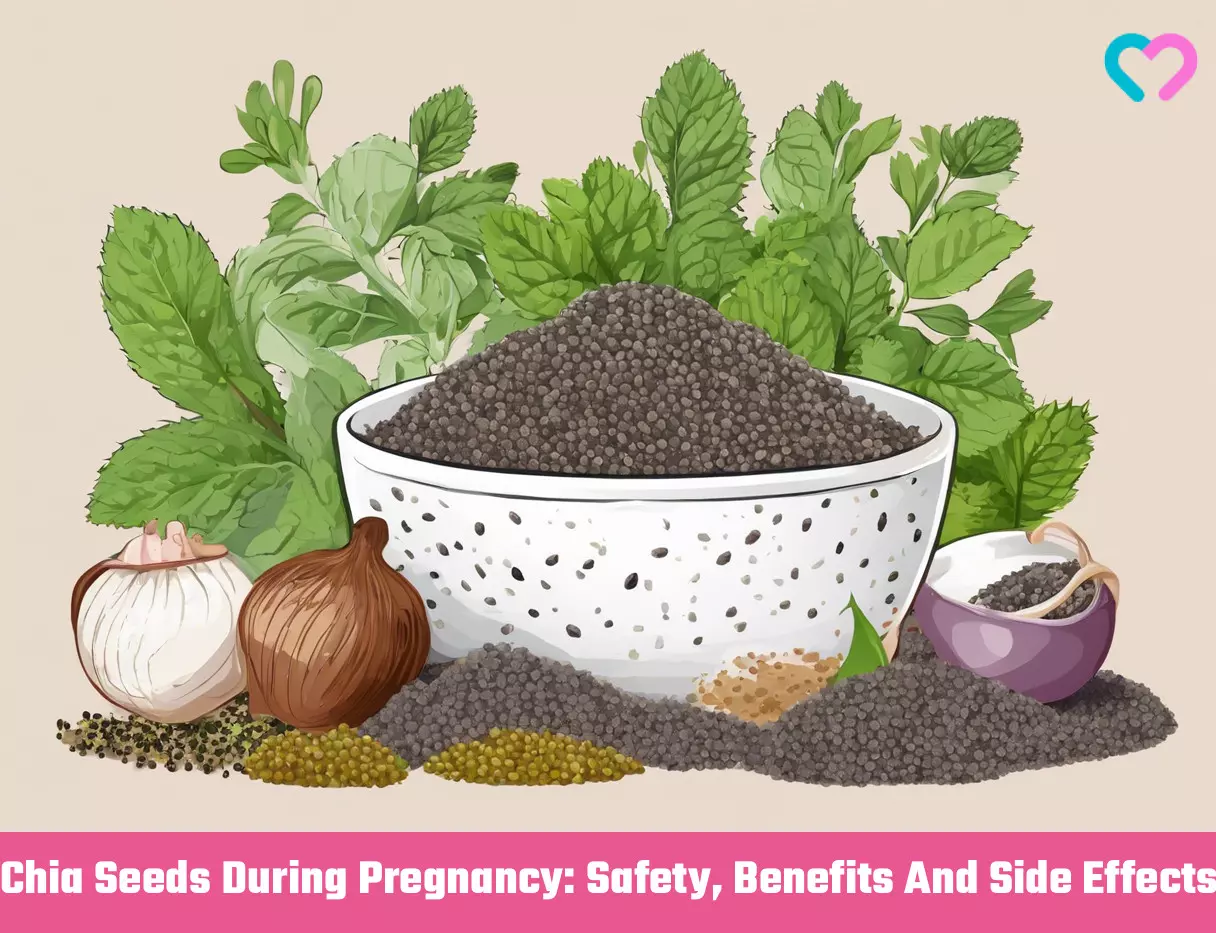
Image: Stable Diffusion/MomJunction Design Team
Curious about the safety of consuming chia seeds while pregnant? Watch this informative video to unravel the truth about incorporating chia seeds into your diet during pregnancy.
Personal Experience: Source
MomJunction articles include first-hand experiences to provide you with better insights through real-life narratives. Here are the sources of personal accounts referenced in this article.
i. Management of pregnancy symptoms.https://ehomemakers-malaysia.blogspot.com/2018/08/management-of-pregnancy-symptoms.html
References
- Ashura Katunzi-Kilewela et al.; (2021); Nutritional health benefits and usage of chia seeds (Salvia hispanica): A review.
https://academicjournals.org/journal/AJFS/article-full-text/310BC7365996 - Norlaily Mohd Ali et al.; The Promising Future of Chia Salvia hispanica L.
https://www.ncbi.nlm.nih.gov/pmc/articles/PMC3518271/ - Seeds chia seeds dried; FDC ID: 170554; Food Data Central USDA.
https://fdc.nal.usda.gov/fdc-app.html#/food-details/170554/nutrients - Rana M; Characterization of CHIA Seed Flour and Wellbeing Endorsing Possessions.
https://www.researchgate.net/publication/338529853_Characterization_of_CHIA_Seed_Flour_and_Wellbeing_Endorsing_Possessions - How to Nourish Mom and Baby Alike: Nutrition During Pregnancy.
https://digitalcommons.usu.edu/cgi/viewcontent.cgi?article=2857&context=extension_curall - The Protein Problem: How much should you REALLY be getting?.
https://blogs.oregonstate.edu/moore/the-protein-problem/ - How to sneak in more dietary fiber.
https://www.health.harvard.edu/staying-healthy/how-to-sneak-in-more-dietary-fiber - Getting Iron from Your Food.
https://hsc.unm.edu/health/patient-care/womens-health/doc/patient-education/getting-iron-from-your-food-english.pdf - Chia: Superfood or superfad?
https://www.aocs.org/resource/chia-superfood-or-superfad/?SSO=True - Healthy food trends — chia seeds.
https://medlineplus.gov/ency/patientinstructions/000727.htm - Chia Seeds.
https://hsph.harvard.edu/department/nutrition/ - Maša Knez Hrnčič et al.; (2020); Chia Seeds (Salvia Hispanica L.): An Overview—Phytochemical Profile, Isolation Methods, and Application.
https://www.ncbi.nlm.nih.gov/pmc/articles/PMC6994964/ - Ben Abdulrahman Albunni et al.; (2019); Antibody Cross-Reactivity between Proteins of Chia Seed ( Salvia hispanica L.) and Other Food Allergens.
https://pubmed.ncbi.nlm.nih.gov/31117490/ - Herbs and Foods to Increase Your Breast Milk Supply.
https://www.uwmedicine.org/sites/stevie/files/2018-11/Herbs-Foods-Increase-Your-Breast-Milk-Supply.pdf
Community Experiences
Join the conversation and become a part of our nurturing community! Share your stories, experiences, and insights to connect with fellow parents.
Read full bio of Sumaiya Patankar
Read full bio of Swati Patwal
Read full bio of Rebecca Malachi
Read full bio of Aneesha Amonz








